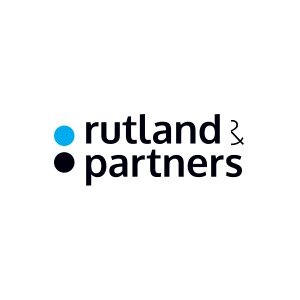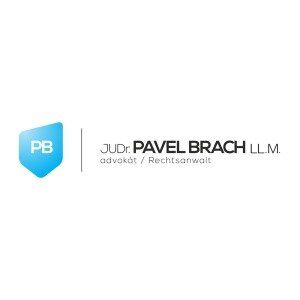Best Funds & Asset Management Lawyers in Czechia
Share your needs with us, get contacted by law firms.
Free. Takes 2 min.
Or refine your search by selecting a city:
List of the best lawyers in Czechia
About Funds & Asset Management Law in Czechia
Funds and asset management law in Czechia governs the creation, operation, management, and regulation of collective investment undertakings and other asset management structures. It deals with how investment funds are set up, how assets are managed professionally for clients, investor rights and protections, and regulatory obligations for management companies. The Czech system aligns closely with European Union (EU) frameworks, such as UCITS (Undertakings for Collective Investment in Transferable Securities) and the Alternative Investment Fund Managers Directive (AIFMD). The field broadly covers areas such as investment funds, pension funds, real estate funds, private equity, and portfolio management services for both retail and institutional clients.
Why You May Need a Lawyer
Legal support is essential in funds and asset management due to the complexity, regulatory nuances, and financial stakes involved. Here are some common situations where involving an experienced lawyer is advisable:
- You are setting up a new investment or collective fund and need guidance on structure, registration, and compliance.
- Your company or fund manager requires licensing or regulatory approval from the Czech National Bank (ČNB).
- You wish to offer fund products to the public or specific investors and need to prepare offering documents, prospectuses, or marketing materials.
- You are involved in a dispute regarding fund management fees, fiduciary duties, or investor relations.
- You are planning cross-border activity and want to ensure compliance with both Czech and EU regulations.
- You have encountered regulatory investigations, audits, or enforcement actions from supervisory bodies.
- You are an investor seeking to understand your rights, due diligence obligations, or recourse mechanisms in case of losses or mismanagement.
Local Laws Overview
Funds and asset management in Czechia are mainly governed by the following laws and regulations:
- Act No. 240/2013 Coll. on Investment Companies and Investment Funds (ZISIF) - This is the main piece of legislation, transposing EU directives into national law.
- Regulation by the Czech National Bank (Česká národní banka, ČNB) - The ČNB is the supervisory authority responsible for licensing, supervision, and enforcement of asset management activities.
- EU Regulations - Including UCITS, AIFMD, and MiFID II, which apply directly or are reflected in Czech national law.
- Tax Laws - Funds may be subject to different corporate or withholding tax treatments, and lawyers can help clarify these obligations.
Key aspects include licensing and registration obligations, capital requirements, investor protection standards, disclosure rules, anti-money laundering (AML) duties, rules on marketing investment funds, and ongoing reporting to regulatory bodies. The Czech legal system is generally considered investor-friendly but relies on strict adherence to formal rules and timelines.
Frequently Asked Questions
What types of investment funds can be established in Czechia?
The main categories are open-ended funds, closed-ended funds, investment companies, investment funds with legal personality, mutual funds, special funds (such as real estate or private equity), and UCITS-compliant funds. Each has different legal and operational requirements.
Who regulates funds and asset management activities in Czechia?
The Czech National Bank (ČNB) is the principal authority supervising funds, asset managers, and other collective investment undertakings. It handles licensing, ongoing supervision, and enforcement actions.
Is it possible for foreign funds to market to Czech investors?
Yes, but foreign funds must comply with Czech and EU regulations, notify the Czech National Bank, and, depending on investor type (retail or professional), fulfill transparency and disclosure obligations.
What licensing is required for asset managers?
Asset managers must obtain a license from the ČNB, demonstrating compliance with capital requirements, governance, experience, and internal control standards defined by law and regulation.
What investor protection measures are in place?
Investors benefit from prospectus and disclosure rules, segregation of client assets, eligibility and suitability assessments, and access to dispute resolution mechanisms. The law aims to provide transparency and limit conflicts of interest.
What are the ongoing regulatory compliance requirements?
Asset managers and funds must file regular financial statements, report significant events to the ČNB, uphold organizational and operational standards, and comply with anti-money laundering and risk management rules.
How are funds and their managers taxed in Czechia?
Funds typically enjoy preferential tax rates on certain income streams, but rules differ depending on fund structure and investor status. Asset managers are usually taxed under standard corporate or personal tax rates.
Can Czech funds invest abroad?
Yes, Czech investment funds can hold assets abroad, subject to their statutes and regulatory limits, such as risk diversification rules and disclosure of foreign investments to their investors and regulators.
What happens if a fund manager breaches duties or the fund becomes insolvent?
Investors may resort to regulatory complaints, civil claims, or, in extreme cases, insolvency proceedings. Legal action can lead to financial compensation, replacement of management, or liquidation of the fund.
Do I need legal advice to invest in or set up a fund?
Legal advice is strongly recommended, especially for structuring, regulatory compliance, preparing documentation, and managing risks. Professional support helps prevent costly pitfalls and ensures all legal obligations are met.
Additional Resources
The following resources may be useful if you are seeking information or support regarding funds and asset management laws in Czechia:
- Czech National Bank (ČNB) - The main regulator providing guidance, publications, and regulatory updates.
- Ministry of Finance of the Czech Republic - Source for laws, regulations, and legislative changes affecting financial markets.
- Association for Capital Market (AKAT) - A professional association of fund managers and investment companies.
- Czech Financial Arbitrator - An independent body resolving disputes between clients and financial institutions, including some investment matters.
- Licensed Czech Law Firms and Legal Advisors - Many firms specialize in financial and regulatory law, offering consultations in English and Czech.
Next Steps
If you need legal assistance regarding funds and asset management in Czechia, consider the following steps:
- Identify your specific needs: Are you setting up a fund, investing, managing, or seeking help with a dispute?
- Gather all relevant documents: These may include fund statutes, prospectuses, contracts, regulatory correspondence, and identification materials.
- Research and contact a reputable legal advisor or law firm with expertise in funds and financial regulation. Prepare a list of questions and clarify your objectives before your consultation.
- If regulatory issues are involved, consider contacting the Czech National Bank for current regulatory requirements or guidance.
- For investor disputes or complaints, explore whether the Czech Financial Arbitrator or similar bodies can provide support before deciding on litigation.
- Stay informed about ongoing legal developments, especially if you operate cross-border or are affected by new EU regulations.
Taking decisive and informed action will help you navigate the highly regulated world of funds and asset management in Czechia, protect your interests, and ensure legal compliance throughout your activities.
Lawzana helps you find the best lawyers and law firms in Czechia through a curated and pre-screened list of qualified legal professionals. Our platform offers rankings and detailed profiles of attorneys and law firms, allowing you to compare based on practice areas, including Funds & Asset Management, experience, and client feedback.
Each profile includes a description of the firm's areas of practice, client reviews, team members and partners, year of establishment, spoken languages, office locations, contact information, social media presence, and any published articles or resources. Most firms on our platform speak English and are experienced in both local and international legal matters.
Get a quote from top-rated law firms in Czechia — quickly, securely, and without unnecessary hassle.
Disclaimer:
The information provided on this page is for general informational purposes only and does not constitute legal advice. While we strive to ensure the accuracy and relevance of the content, legal information may change over time, and interpretations of the law can vary. You should always consult with a qualified legal professional for advice specific to your situation.
We disclaim all liability for actions taken or not taken based on the content of this page. If you believe any information is incorrect or outdated, please contact us, and we will review and update it where appropriate.
Browse funds & asset management law firms by city in Czechia
Refine your search by selecting a city.










